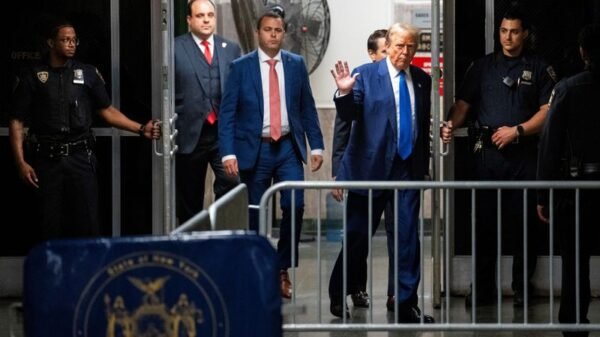House Sends $1.2 Trillion Funding Deal to Senate Before Midnight Shutdown Deadline
The House passed a $1.2 trillion funding package on Friday, just hours before the midnight deadline when federal funding would expire for most government operations. Speaker Mike Johnson relied heavily on Democratic votes to secure passage, a tactic he has frequently employed since assuming the speakership five months ago. Despite the quick turnaround for voting on the massive spending bill—less than 36 hours after its release—the measure faced opposition from conservatives upset by the rushed process.
Rep. Marjorie Taylor Greene criticized the haste in voting on the bill, referencing previous complaints about insufficient time to review extensive legislation. She also expressed frustration with Johnson’s approach to funding negotiations, which differed from the tactics used by former Speaker Kevin McCarthy. In response, Greene filed a motion to remove Johnson from the speakership during the vote.
Johnson’s strategy involved bipartisan negotiations and adhering to a spending deal struck between McCarthy and President Joe Biden the previous summer. The speaker opted to pass the 12 funding bills in two large packages, deviating from the previous approach of individual bills.
Some House lawmakers anticipated the spending bill’s failure due to Republican objections to earmarks secured by Senate Democrats. Additionally, there was disappointment among some lawmakers over the absence of a pay increase for members of Congress, which has been blocked from spending bills for over a decade.
Alabama Rep. Robert Aderholt led opposition to earmarks directed towards Senate Democrats’ home states, particularly those related to controversial topics such as immigration, abortion, and LGBTQ+ issues. Many Republicans objected to federal funding supporting such initiatives.
Despite bipartisan efforts to adhere to budget caps, there remains uncertainty about avoiding a brief partial shutdown at midnight. The Senate is under pressure to expedite votes on the legislation to prevent federal cash from lapsing, affecting various government agencies and programs. However, even if final passage is delayed, the impact on federal services may be minimal, particularly if the shutdown occurs over a weekend.
President Biden could mitigate the effects of a shutdown by directing agencies to continue essential functions without funding. Additionally, certain services, such as military commissary stores, may remain operational for a limited time using cash reserves.
































































Comment Template